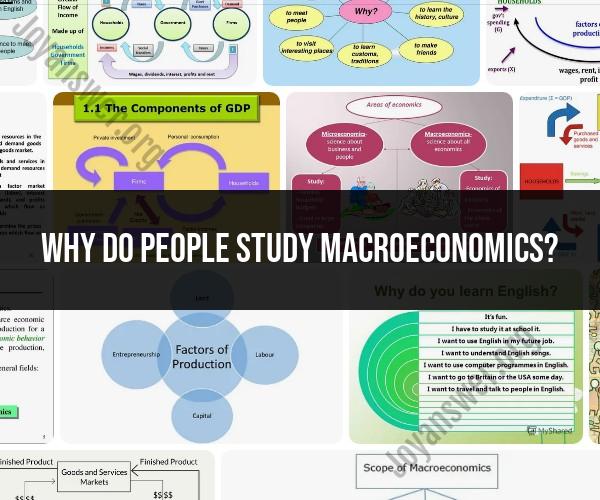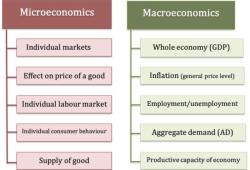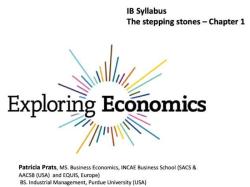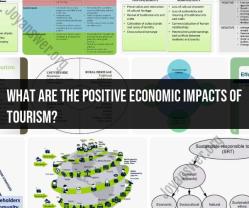Why do people study macroeconomics?
People study macroeconomics for a variety of reasons, as the field plays a crucial role in understanding and analyzing the overall economic system of a country or the global economy. Here are several motivations behind studying macroeconomics:
Understanding Economic Systems:
- Macroeconomics provides a framework for understanding how entire economic systems function, including the factors that influence economic growth, unemployment, and inflation.
Policy Analysis:
- Policymakers, including government officials and central bankers, study macroeconomics to formulate effective economic policies. This includes monetary policy, fiscal policy, and other measures to stabilize the economy.
Business Decision-Making:
- Business leaders and entrepreneurs study macroeconomics to anticipate economic trends that may impact their industries. This understanding helps in making informed business decisions, such as investment strategies and expansion plans.
Investment Planning:
- Investors analyze macroeconomic indicators and trends to make informed investment decisions. This includes assessing the overall economic climate, interest rates, inflation, and government policies that can affect various asset classes.
Employment and Labor Markets:
- Macroeconomics provides insights into the factors influencing employment levels and wage rates. Understanding macroeconomic indicators helps policymakers and businesses address issues related to unemployment and labor market dynamics.
Inflation and Price Stability:
- Macroeconomics helps in studying inflation, its causes, and its impact on the purchasing power of money. Policymakers aim for price stability to ensure the smooth functioning of an economy.
Global Economic Interactions:
- In an increasingly interconnected world, the study of macroeconomics is essential for understanding global economic dynamics, international trade, and the effects of economic policies across borders.
Forecasting Economic Trends:
- Economists and analysts use macroeconomic models to forecast economic trends. This information is valuable for businesses, governments, and individuals for planning and decision-making.
Government and Public Policy:
- Government officials and policymakers use macroeconomics to design and implement policies that address issues such as economic inequality, poverty, and overall economic well-being.
Economic Stability and Crises:
- Macroeconomics plays a key role in analyzing economic stability and identifying factors that may lead to economic crises. Understanding these factors helps in developing strategies to prevent or mitigate crises.
Interest Rate Management:
- Central banks use macroeconomic indicators to make decisions on interest rates. Interest rate management is a crucial tool for controlling inflation and supporting economic growth.
Social and Environmental Considerations:
- Macroecomics can also be applied to study the social and environmental aspects of economic development. This includes examining the impact of economic policies on societal well-being and sustainability.
Academic and Research Pursuits:
- Students and researchers study macroeconomics as part of academic pursuits or research projects to contribute to the body of knowledge in economics.
In summary, the study of macroeconomics is multifaceted and serves various purposes, ranging from informing policy decisions to helping individuals and businesses navigate economic conditions. It provides a broad perspective on the functioning of economies at a macro level, offering insights that are valuable across different sectors and disciplines.
Reasons behind the study of macroeconomics and its relevance
Macroeconomics studies the broader aspects of an economy as a whole, focusing on topics like inflation, unemployment, economic growth, and international trade. Understanding these dynamics is crucial for several reasons:
Effective Policymaking: Governments and central banks rely on macroeconomic analysis to inform their policies, such as setting interest rates, managing national budgets, and implementing programs to combat inflation or unemployment. Accurate understanding of economic trends helps them formulate policies that promote stability, growth, and well-being for the entire population.
Business and Investment Decisions: Businesses use macroeconomic data to make informed decisions about investment, production, and hiring. Understanding economic trends helps them forecast demand, assess risks, and plan for the future. Investors also rely on macroeconomic analysis to make informed decisions about where to allocate their capital and manage risk in their portfolios.
Addressing Global Challenges: Macroeconomics plays a vital role in tackling global challenges like climate change, poverty, and inequality. By understanding the взаимосвязь между economic development and environmental sustainability, policy makers can design strategies that promote economic growth while minimizing environmental impact. Similarly, macroeconomic analysis helps identify and address the root causes of poverty and inequality, paving the way for more equitable and sustainable development.
Individual Financial Planning: Individuals can benefit from understanding macroeconomic trends when making personal financial decisions. Knowing about inflation, interest rates, and overall economic stability can help them budget effectively, manage debt, and plan for their future retirement or investments.
Beyond Numbers: Macroeconomics isn't just about numerical analysis; it also delves into the social and political factors that influence economic behavior. By understanding the взаимосвязь between economic forces and societal issues, we can build a more comprehensive understanding of the world around us and develop solutions that address not just economic concerns but also wider social challenges.
In conclusion, studying macroeconomics offers valuable insights into the complex workings of an economy, impacting individuals, businesses, and policymakers alike. The knowledge gained through macroeconomic analysis enables us to make informed decisions, craft effective policies, and navigate the ever-changing landscape of the global economy.
Feel free to ask if you have any further questions about specific aspects of macroeconomics, its applications, or any of the points mentioned above.












